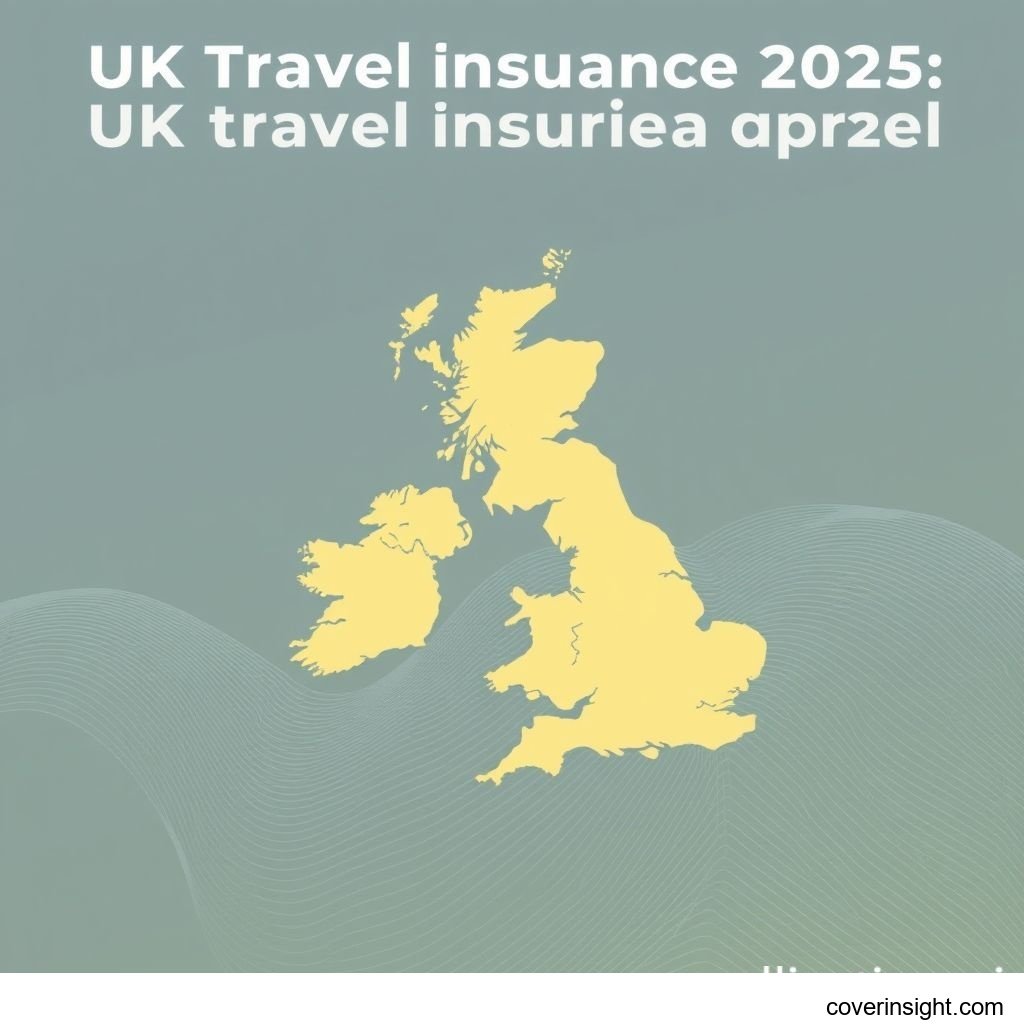Introduction
As 2025 approaches, many UK residents are planning their next adventures abroad. For those anticipating trips that extend beyond typical holiday durations, securing comprehensive 90 day travel insurance is an essential step. This type of policy is specifically designed for longer single journeys, providing vital financial protection and peace of mind for travellers from Great Britain. Whether you're exploring multiple destinations, visiting family for an extended period, or embarking on a gap year adventure, understanding the nuances of 90-day coverage is crucial for a smooth and secure trip. Without adequate insurance, unexpected medical emergencies or trip disruptions could lead to significant financial burdens, making proper planning indispensable.
Coverage Details
When planning an extended trip, the scope of your 90 day travel insurance policy is paramount. It’s not just about meeting a time frame; it’s about ensuring you’re protected against a wide array of potential issues that can arise during a lengthy stay abroad.
What’s Included
A robust 90-day travel insurance policy typically offers extensive coverage, going beyond the basics to protect you for the duration of your trip. Key components usually include:
-
Emergency Medical Expenses: This is arguably the most critical aspect, covering hospital stays, doctor's fees, prescription medication, and even emergency dental treatment. Given the high cost of healthcare in many countries, this can save you from substantial debt.
-
Repatriation: Should you become seriously ill or injured, this covers the cost of transporting you back to the UK for further medical treatment or recovery.
-
Cancellation, Curtailment, and Resumption: Protects against financial losses if your trip is cancelled, cut short, or requires resumption due to unforeseen circumstances like illness, bereavement, or natural disaster.
-
Lost, Stolen, or Damaged Baggage: Compensation for personal belongings, including valuables, if they are lost, stolen, or damaged during your travels.
-
Personal Liability: Covers legal costs and compensation if you accidentally cause injury to another person or damage their property.
-
Travel Delay and Missed Departure: Provides financial support for unexpected delays or if you miss a connecting flight due to reasons beyond your control.
-
Emergency Assistance: 24/7 access to a helpline for advice and support in emergency situations.
-
Catastrophe Cover: Some policies include cover for natural disasters or acts of terrorism, though specifics vary.
For those planning to engage in specific activities, ensure your 90 day travel insurance covers them. For instance, winter sports, diving, or certain adventure activities often require an add-on.
Common Exclusions
Understanding what your 90 day travel insurance policy does not cover is just as important as knowing what it does. Common exclusions can include:
-
Pre-existing Medical Conditions: Unless explicitly declared and approved by your insurer, conditions known before purchasing the policy are typically excluded.
-
Acts of War or Terrorism: While some policies offer limited cover, broad exclusions related to war zones or declared acts of terrorism are common.
-
Self-inflicted Injury: Injuries sustained due to drug or alcohol abuse, or deliberate self-harm, are generally not covered.
-
Unsupervised Valuables: Leaving personal items unattended in public places, or not taking reasonable care of your belongings, may invalidate claims.
-
Risky Activities: Certain high-risk sports or activities (e.g., bungee jumping, mountain climbing without proper cover) are often excluded unless an additional premium is paid.
-
Failure to Obtain EHIC/GHIC (if applicable): While not a substitute for travel insurance, failure to obtain or renew an EHIC/GHIC (if still valid for your destination) might impact some claims for reciprocal healthcare.
-
Travel Against FCDO Advice: If you travel to a country or region against the advice of the Foreign, Commonwealth & Development Office (FCDO), your policy may be invalidated. Always check the FCDO website before you travel.
It is always advisable to read the Policy Wording document thoroughly to understand the full terms and conditions of your 90 day travel insurance policy.
Cost Analysis
The cost of 90 day travel insurance can vary significantly based on a range of factors. Understanding these elements can help you find a policy that offers excellent value without compromising on essential protection.
Price Factors
Several key elements influence the premium you'll pay for your 90-day policy:
-
Age of the Traveller: Older travellers, especially those seeking senior travel insurance, typically face higher premiums due to an increased likelihood of health issues.
-
Destination: Countries with high medical costs (e.g., USA, Canada) will result in more expensive policies compared to destinations with more affordable healthcare systems.
-
Pre-existing Medical Conditions: Declaring and covering pre-existing conditions can increase the premium, as insurers take on greater risk. Failure to declare could invalidate your policy.
-
Cover Level: Comprehensive policies with higher limits for medical expenses, cancellation, or personal belongings will naturally cost more.
-
Activities: Plans to engage in extreme sports or high-risk activities will necessitate additional cover, increasing the premium.
-
Number of Travellers: Policies covering multiple individuals, such as those with family plan discounts, will have a higher base cost but might offer per-person savings compared to individual policies.
-
Policy Excess: Choosing a higher excess (the amount you pay towards a claim) can often reduce the upfront premium, but remember you’ll pay more if you need to make a claim.
Saving Tips
While ensuring adequate coverage is paramount, there are smart ways to potentially reduce the cost of your 90 day travel insurance:
-
Shop Around: Use comparison websites to get quotes from multiple providers. Prices for the same level of cover can vary widely.
-
Buy Online: Many insurers offer discounts for policies purchased directly through their website.
-
Consider Multi-Trip/Annual Policies (Carefully): If you plan more than one trip within a 12-month period, an annual multi-trip policy might be more cost-effective than buying multiple 90-day single trip policies. However, ensure the total number of days covered per trip meets your 90-day requirement.
-
Increase Your Excess: As mentioned, opting for a higher excess can lower your premium. Ensure you can comfortably afford this amount if you need to claim.
-
Declare Accurately: Providing accurate information, especially regarding medical history, prevents claims from being rejected and can sometimes lead to lower quotes than over-declaring.
-
Look for Family Plan Discounts: If travelling with children or other family members, many insurers offer discounted rates for group policies. This can significantly reduce the overall cost compared to purchasing individual plans.
-
Bundle Policies: Some insurers offer discounts if you purchase multiple policies from them (e.g., home insurance, car insurance, and travel insurance).
Applying for Your 90 Day Travel Insurance
Securing your 90 day travel insurance doesn't have to be a complicated process. By following a few key steps, you can ensure you get the right policy for your needs.
Navigating the Application Process
Applying for travel insurance is typically straightforward, especially online. Here's a general guide:
-
Gather Information: Have your travel dates, destination(s), personal details (including date of birth for all travellers), and medical history (including any pre-existing conditions) readily available.
-
Define Your Needs: Consider your planned activities, the value of your belongings, and any specific requirements you might have. Do you need cover for specific sports, electronics, or business equipment?
-
Compare Quotes: Use reputable comparison websites or visit individual insurer websites. Input your details to get a range of quotes.
-
Review Policy Details: Don't just look at the price. Carefully read the Policy Wording for each option. Pay attention to:
-
Maximum cover limits for medical emergencies, cancellation, and baggage.
-
Any specific exclusions related to your destination or activities.
-
The excess amount.
-
The claims process.
-
-
Declare Medical Conditions: Be completely honest about any pre-existing medical conditions. Failure to do so can invalidate your policy, leaving you uninsured when you need it most.
-
Purchase Your Policy: Once you've chosen the right policy, complete the purchase online or over the phone. You'll typically receive your policy documents via email.
It's highly recommended to purchase your 90 day travel insurance as soon as you book your trip. This ensures you're covered for cancellation from the moment you pay for your holiday, protecting your investment.
Understanding EHIC/GHIC & Insurance
For UK travellers, the European Health Insurance Card (EHIC) and its replacement, the Global Health Insurance Card (GHIC), are often misunderstood in relation to travel insurance.
-
What they are: EHIC/GHIC cards allow you to access state-provided healthcare in EU countries (and Switzerland, Norway, Iceland, Liechtenstein for existing EHIC or specific GHIC arrangements) at the same cost as a local resident. For UK citizens, a new GHIC has replaced the EHIC for new applications.
-
What they are NOT: They are NOT a substitute for comprehensive travel insurance. They do not cover:
-
Private medical treatment.
-
Repatriation back to the UK.
-
Cancellation or curtailment of your trip.
-
Lost baggage or personal liability.
-
Even with an EHIC or GHIC, having 90 day travel insurance is vital. The card merely covers basic emergency medical care in some European countries, leaving significant gaps that only a comprehensive insurance policy can fill. The Financial Conduct Authority (FCA) strongly advises travellers to always take out travel insurance regardless of whether they hold an EHIC or GHIC.
Understanding Specific Needs: Senior and Family 90 Day Travel Insurance
Travel insurance needs can vary significantly based on who is travelling. Recognising these specific requirements is key to finding the most appropriate and cost-effective 90 day travel insurance policy.
Senior Travel Insurance Considerations
For older travellers, finding suitable 90 day travel insurance can sometimes present unique challenges, primarily due to age and potential pre-existing medical conditions. However, many specialist providers cater specifically to the senior market.
Key considerations for seniors:
-
Medical Screening: Be prepared for more thorough medical screening questions. Honesty is crucial to ensure your policy is valid.
-
Specialist Providers: Explore insurers who specialise in senior travel insurance. They often have more flexible terms and competitive rates for older age groups, understanding their specific needs.
-
Higher Medical Limits: Given the potential for more complex medical needs, ensure the policy offers very high limits for emergency medical expenses, ideally unlimited or several millions of pounds.
-
Repatriation Cover: This is particularly important for seniors, ensuring comfortable and safe return to the UK if required due to illness or injury.
-
Activity Restrictions: Check if there are any age-related restrictions on activities you plan to undertake.
-
Mobility Aids: Ensure cover for mobility aids or specialist equipment is included if needed.
Many policies now offer specific benefits for seniors, such as cover for medical equipment, or a higher level of personal assistance. Comparing options designed specifically for senior travel insurance can yield better results than standard policies.
Family Plan Discounts
Travelling as a family for 90 days requires a robust policy that covers everyone, often at a more economical rate than individual policies. Family plan discounts are a common feature among many insurers, designed to make comprehensive cover more accessible for groups.
Benefits of family plans:
-
Cost-Effectiveness: Often, children under a certain age (e.g., 18 or 21, depending on the insurer) can be added for free or at a significantly reduced cost when accompanying insured adults. This provides substantial family plan discounts.
-
Simplified Management: One policy covers all family members, making administration and claims processing simpler.
-
Broad Coverage: Family policies typically include medical, baggage, cancellation, and personal liability for all insured members, often extending to cover children travelling independently (e.g., school trips) within the policy terms.
-
Tailored for Families: Some policies include specific benefits relevant to families, such as cover for buggy hire if yours is lost, or emergency childcare expenses.
When looking for a family policy, confirm the definition of 'family' (e.g., children must be dependants, living at the same address), and check the maximum age limit for children to be included under the family plan discounts. This ensures all members of your travelling party are adequately protected under one cohesive 90 day travel insurance policy.
FAQs
How much does 90 day travel insurance cost?
The cost of 90 day travel insurance varies widely. It can range from under £100 for a younger traveller with no medical conditions heading to Europe, to several hundreds or even thousands of pounds for older travellers with complex pre-existing conditions travelling to the USA. Key factors include age, destination, medical history, and desired cover level.
What affects premiums?
Premiums are primarily affected by:
-
Traveller's age: Older individuals generally pay more.
-
Destination: Countries with high healthcare costs (e.g., USA, Canada) increase premiums.
-
Pre-existing medical conditions: These require declaration and often increase costs.
-
Level of coverage: Higher limits and more inclusions mean higher premiums.
-
Activities: High-risk sports require additional cover.
Is 90 day travel insurance mandatory?
No, 90 day travel insurance is not legally mandatory for UK citizens travelling abroad. However, it is highly recommended by government bodies like the FCDO and financial regulators like the FCA. Without it, you could face significant financial burdens if you encounter a medical emergency, trip cancellation, or other unforeseen issues during your extended trip.
How to choose the best 90 day travel insurance?
Choosing the best 90 day travel insurance involves:
-
Assessing your needs: Consider your destination, activities, and medical history.
-
Comparing quotes: Use comparison sites to find competitive prices from various insurers.
-
Reading policy documents: Pay close attention to medical limits, exclusions, and repatriation cover.
-
Checking reputation: Look for insurers with good customer service and claims handling.
-
Declaring all conditions: Be honest about medical history to ensure your policy is valid.
What are the consequences of no coverage for 90 days?
Travelling for 90 days without adequate insurance can lead to severe consequences:
-
Exorbitant medical bills: Overseas medical treatment, especially in countries like the USA, can run into tens or hundreds of thousands of pounds.
-
Repatriation costs: If you need to be flown home due to a serious illness or injury, this can cost upwards of £20,000 without insurance.
-
Financial loss from cancellations: You won't be reimbursed for non-refundable flights, accommodation, or tours if your trip is cancelled or cut short.
-
Lost baggage/belongings: No compensation if your personal items are lost, stolen, or damaged.
-
Legal costs: No protection against personal liability claims if you accidentally cause damage or injury.
The Association of British Insurers (ABI) consistently advises against travelling uninsured due to these significant risks.








Comments